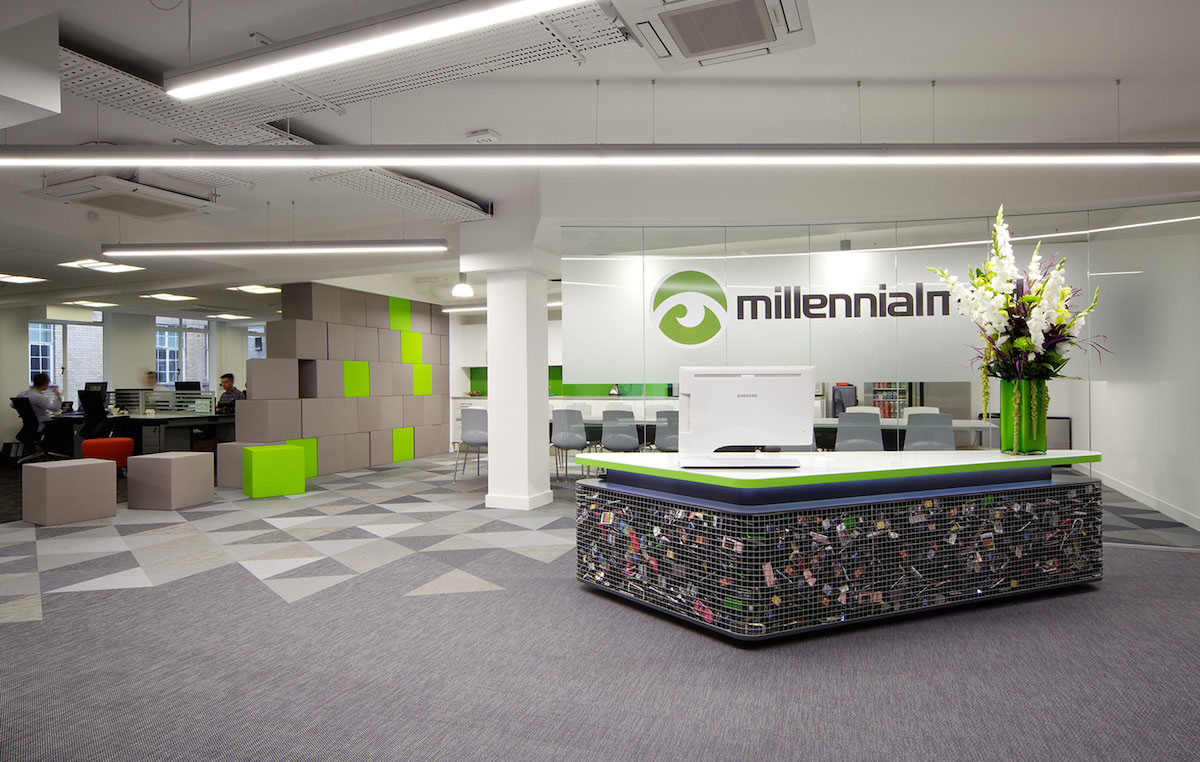Millennial Media posted more losses in the second quarter of 2015, doing nothing to tamp down rumors that the adtech company was in line for an acquisition.
The Canton-based mobile ad exchange posted revenue of $65.8 million, down from $67.3 million in the second quarter of 2014. Net losses were $15.5 million, compared with $15.1 for the second quarter of last year.
The latest figures come on the heels of a report in TechCrunch that AOL offered as much as $350 million to acquire the publicly-traded company. That deal would have big implications for Baltimore, given Millennial’s founding here and AOL’s adtech presence here that grew out of its past acquisition of Advertising.com.
Exploring all kinds of strategic alternatives and partnerships makes a lot of sense for us.
On a conference call to report the results, Millennial Media CEO Michael Barrett didn’t confirm the reports, but acknowledged that the company has been in talks about making a move to get more revenue flowing.
“The reality is that it is taking longer than originally expected to grow revenues, and this is going to require Millennial to compete differently,” he said. “While we are not going to comment on any specific rumors, we can acknowledge that, as you’d expect, we’ve had a number of discussions with a variety of companies about potential strategic alternatives, including the potential acquisition of Millennial Media.”
Barrett said he believes in the company’s tech, touting the programmatic offerings in its recent acquisition of Nexage, and an updated version of the company’s software development kit that allows publishers to more easily put video in ads.
However, Barrett said existing “larger players” are getting more of the ad market share. In Millennial’s case, those larger players are companies like Google and Facebook that don’t seem to be going anywhere. The bigger companies have their own inventory of content for ads, while Millennial Media only works with third-party buyers.
“We don’t possess our own inventory source, and that creates a certain economic disadvantage when it relates to monetization,” Barrett said.
As a result, Barrett said, “Exploring all kinds of strategic alternatives and partnerships makes a lot of sense for us.”
Before you go...
Please consider supporting Technical.ly to keep our independent journalism strong. Unlike most business-focused media outlets, we don’t have a paywall. Instead, we count on your personal and organizational support.
3 ways to support our work:- Contribute to the Journalism Fund. Charitable giving ensures our information remains free and accessible for residents to discover workforce programs and entrepreneurship pathways. This includes philanthropic grants and individual tax-deductible donations from readers like you.
- Use our Preferred Partners. Our directory of vetted providers offers high-quality recommendations for services our readers need, and each referral supports our journalism.
- Use our services. If you need entrepreneurs and tech leaders to buy your services, are seeking technologists to hire or want more professionals to know about your ecosystem, Technical.ly has the biggest and most engaged audience in the mid-Atlantic. We help companies tell their stories and answer big questions to meet and serve our community.
Join our growing Slack community
Join 5,000 tech professionals and entrepreneurs in our community Slack today!






